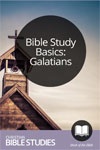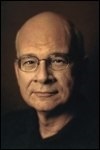In The Folly of Prayer Pastor Matt Woodley challenges us to reimagine and revitalize our prayer life.
IVP: Why do you describe prayer as folly?
Woodley: Prayer doesn't always operate according to our standards of "wisdom." Nor does it conform to our expectations or formulas. Sometimes our prayer life leaves us bathed in God's warmth and safety. At other times we feel abandoned by a mysterious and elusive God. During these times we feel more of God's "absence" than God's presence. One of the classic hymns asks us to sing about how prayer "draws us from a world of care," but at times real prayer plunges us into a world of care and pain and injustice. Prayer awakens our heart to the ache within us and the cries around us. At times prayer feels so utterly desperate—loud, urgent, messy groans that issue from our gut to a hidden God. Prayer can seem so inefficient. Spending time listening to God's heartbeat doesn't produce immediate results; it doesn't appear to change the world for Jesus' sake. And yet, these times of confusion, failure, silence, darkness and apparent powerlessness can open our hearts to the presence of our triune God.
We live in a society that is very results-driven. How would you convince someone who has seen few results from prayer that it is still important?
Woodley: We usually think of results in terms of efficiency and control—in other words, how much did I get done today or this year? Was I in charge of my life? Unfortunately, when we apply this control mode to our prayer life we'll focus on questions about results: How long did I pray? How many words did I use? Did I feel an experience of intimacy with God? Did I get the right answers from God? Did God fix me or something else? Did I get through my prayer list? But prayer isn't about control. It's about being with Someone. Sometimes when we're with those we love the most we just want to sit in silence and enjoy their presence. We may need to argue with loved ones, or tell them that we're hurting. We may need to connect with loved ones through a hug or a hand on the shoulder. If you're talking to me, I have to pay attention and listen to you. These aspects to human relationships aren't about results or efficiency.
In the same way, praying isn't about productivity and control. It's about being with our heavenly Father who loves us. Within the safety of this relationship we can just be with God, or we can groan before Jesus, or we can cry out to him, or pay attention or even argue. It's such a beautiful, safe relationship, but we don't control the results of it. In the book I use the following picture to describe our prayer life: It's like those tiny birds that ride on the massive shoulder of a wild rhinoceros. Imagine the bird telling the rhinoceros, "Okay, buddy, turn left. Now turn right so I can get some more sun. Now charge full-speed ahead because I need some wind in my face." For the most part, the rhino sets the agenda, not the tiny bird. Our heavenly Father is utterly good and faithful, but he's also a mysterious, jealous God.
Should people be prepared for some darkness as they engage in a deeper life of prayer?
Woodley: Yes. Our evangelical tradition loves to emphasize the dramatic upside of prayer and worship. Being with Jesus makes us happy. Worship music makes us happy. Darkness is quickly dispelled as we align our lives with God's good will for our lives. Some of this is true, but there's another equally valid tradition in Christian spirituality. John of the Cross called it being in the whale's belly or the horrenda noche, "the horrible night." Sometimes we just hurt, groan and ache and there aren't easy resolutions. A few praise songs and bright lights won't fix the sadness in our hearts. Sometimes we're utterly desperate for God. Sometimes prayers go unanswered and we're not sure why. We may want to rail against God and argue with God—a practice which God encourages.
The point is that we feel God's absence during these times, but God may be present in a way that we cannot fathom. The dark nights may open our lives to aspects of God's character and presence that we didn't notice during the up times of prayer. God may change us and draw us to himself in beautiful ways because of the dark times of prayer. These times of darkness and desperation can also remind us to embrace suffering people. When we feel desperate for God, we start to notice the millions of desperate people on this planet. When we can only groan our prayers to God, we learn to attend to other fellow groaners.
What would you say are the key ingredients to making a successful prayer?
Woodley: Grace: It all begins with God, not with us. God wants to meet us. God wants us to come to him—with our anguish, our questions, our desperation, our longing and even our complaints against him.
Authenticity: We come just as we are. In the book I put it this way: "It's as if God is saying, 'Talk, engage, respond to me. Anything is better than the silent treatment or the cold shoulder. Argue, rant, rave, yell, disagree, but don't just sit there. Or worse, don't come to me with pious, pretty words that are empty and fake.' I'm learning that prayer is an intensely personal and passionate conversation with a covenant-making God who is there; it's an exercise that involves all of me—the real me, not just the pretty but pretend me."
Communion: A huge part of prayer—a part that we struggle with in our pragmatic culture—is just being with God. Some Christians call this contemplative prayer, a gentle, often silent being-with-God.
Attentiveness: There are so many distractions to our prayer life. To paraphrase the poet Denise Levertov, we have the spiritual attention span of a minnow. That's why real prayer requires patience, silence and attentiveness.
Openness or a willingness to be surprised: God is good and faithful, but he's also mysterious. I compare Jesus to a slightly off-balance New York City cab driver: he'll get you to your destination, but you'll certainly take a route and hit some bumps that you never expected.
Compassion: That is, compassion for others. Prayer propels us into a world of hurt. As God meets us at the marginal places in our lives, he'll move our hearts to display compassion to marginal people. As God helps us in our desperate places, we'll notice the desperate people all around us.
You talk about how prayer is actually about powerlessness. Can you explain that a bit?
Woodley: I use the example of my friend Theresa, who experienced a dark, dark night of the soul. After achieving all of her personal dreams, she dropped into the abyss of a deep depression. Everything went dark in her mind and body. Three years ago I would have had plenty of answers and solutions for her. I would have been so clever and powerful. But now I could only sit with her in her pain. We prayed. I didn't know what to do, didn't have any answers, so I said, "Theresa, I have no idea what to say, so could we just read the Psalms?" Then I read Psalm 77, an agonizing psalm of lament, and I went home. I left feeling utterly powerless, and I sure didn't think that I made her feel better.
The next week someone else came to visit Theresa. She was still suffering intensely, but when the leader asked if he could pray for her, Theresa said, "Yes, but before you pray, please read Psalm 77. I've been clinging to it all week. It's my lifeline to God." Apparently when we read Psalm 77 in utter powerlessness, God showed up in her life with power. At times the best, most powerful and most useful way to love someone is to get to the end of myself. I admit that I can't fix you or change you. My words and my advice won't heal your brokenness. But I can be with you, and we can go together to the Father. So we come as weak and frail and hardhearted instruments, but we also come as sons and daughters who know their Father's heart. And on your behalf I do something so useless that leads to such power: I pray for you.
How is praying for someone the same as loving someone?
Woodley: We often assume that real love is expressed by doing something practical for people. So if you're hungry, I should make you a turkey sandwich. If you're homeless, I should advocate for fair housing. Of course, the Bible is very practical when it comes to issues of justice like this. By all means, make the sandwich and create fair housing, but the Bible is also clear that prayer is a real "thing," it's a true and practical act of love. So when I pray for you, I'm expressing love for you. From a Christian perspective this makes perfect sense because God exists as a community of loving relationships. So when I ask you, "How can I pray for you?" and then I truly listen and diligently pray, I bring both of us into the presence of the triune God. This God already exists in a praying community of love. So engaging in intercessory prayer certainly isn't less loving than making a turkey sandwich or working for fair housing. Prayer doesn't excuse works of justice and mercy, but on the other hand, prayer in itself is a practical expression of love.
Click here to order The Folly of Prayer.












